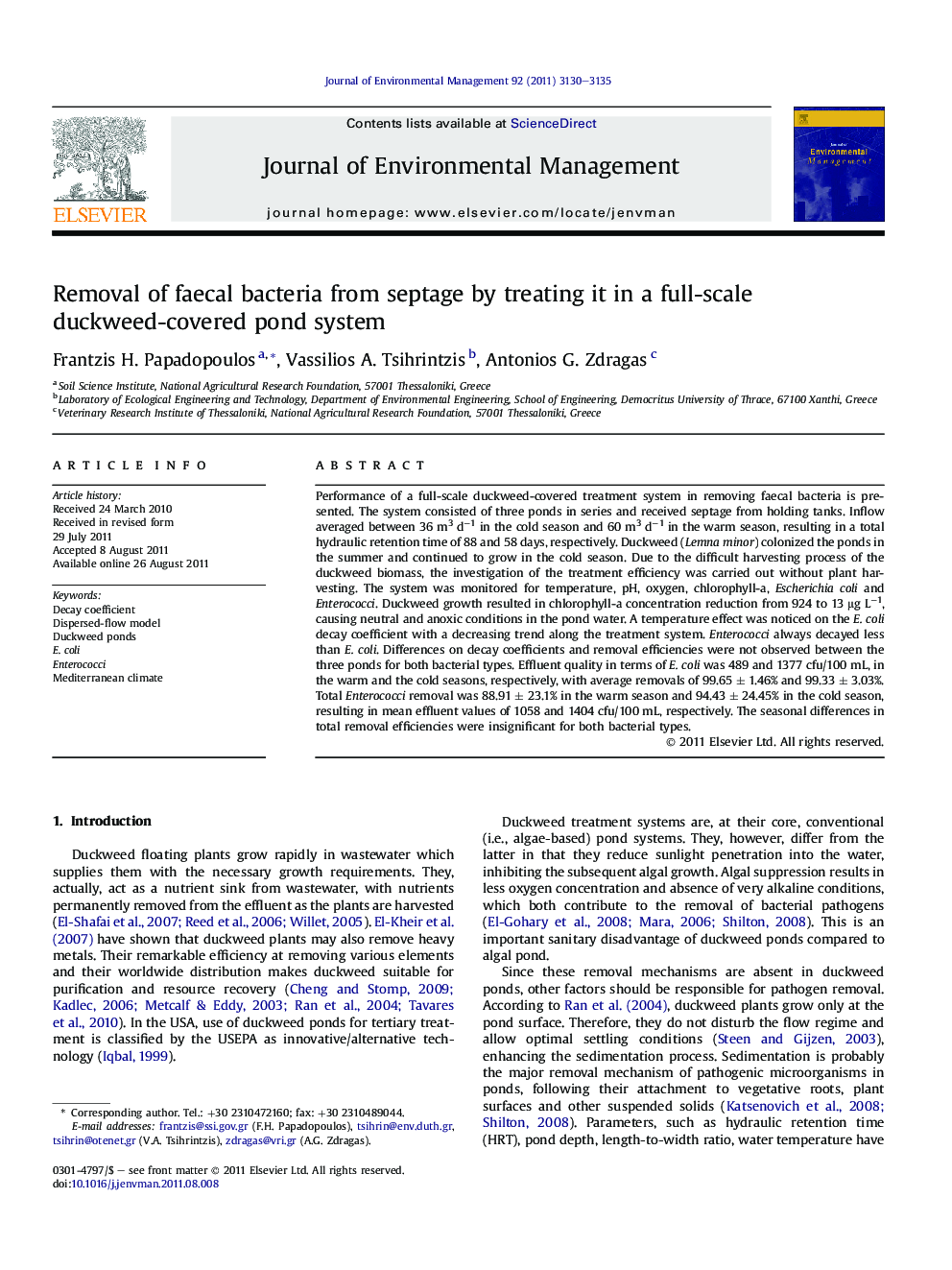| کد مقاله | کد نشریه | سال انتشار | مقاله انگلیسی | نسخه تمام متن |
|---|---|---|---|---|
| 1057117 | 947060 | 2011 | 6 صفحه PDF | دانلود رایگان |

Performance of a full-scale duckweed-covered treatment system in removing faecal bacteria is presented. The system consisted of three ponds in series and received septage from holding tanks. Inflow averaged between 36 m3 d−1 in the cold season and 60 m3 d−1 in the warm season, resulting in a total hydraulic retention time of 88 and 58 days, respectively. Duckweed (Lemna minor) colonized the ponds in the summer and continued to grow in the cold season. Due to the difficult harvesting process of the duckweed biomass, the investigation of the treatment efficiency was carried out without plant harvesting. The system was monitored for temperature, pH, oxygen, chlorophyll-a, Escherichia coli and Enterococci. Duckweed growth resulted in chlorophyll-a concentration reduction from 924 to 13 μg L−1, causing neutral and anoxic conditions in the pond water. A temperature effect was noticed on the E. coli decay coefficient with a decreasing trend along the treatment system. Enterococci always decayed less than E. coli. Differences on decay coefficients and removal efficiencies were not observed between the three ponds for both bacterial types. Effluent quality in terms of E. coli was 489 and 1377 cfu/100 mL, in the warm and the cold seasons, respectively, with average removals of 99.65 ± 1.46% and 99.33 ± 3.03%. Total Enterococci removal was 88.91 ± 23.1% in the warm season and 94.43 ± 24.45% in the cold season, resulting in mean effluent values of 1058 and 1404 cfu/100 mL, respectively. The seasonal differences in total removal efficiencies were insignificant for both bacterial types.
► Duckweed causes anoxic and neutral pond conditions.
► Stable pH and DO profiles with depth in duckweed ponds.
► Temperature effect on the E. coli decay rate depends on treatment time.
► Enterococci have slower decay rates than E. coli.
► Bacterial decay rates are similar between facultative and maturation ponds.
Journal: Journal of Environmental Management - Volume 92, Issue 12, December 2011, Pages 3130–3135